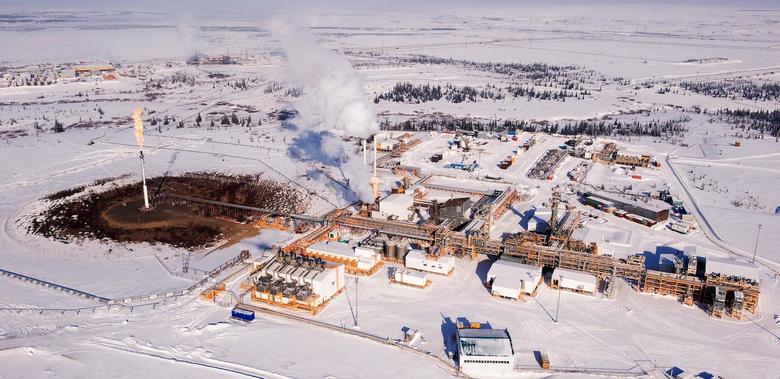
RUSSIAN ECONOMY EFFICIENCY

Russia's general economy is withstanding depressed global crude oil prices now despite its heavy reliance on crude exports because the government adopted different financial policies in 2008, a Yale University International Security Studies official told a Washington, DC, audience.
"The economy has held up surprisingly well when you consider the stresses on it" that include Western sanctions preventing banks and oil companies from issuing debt and imposing bans on high-tech oil equipment purchases, said Christopher Miller, Associate Director of the Brady-Johnson Grand Strategy Program at Yale ISS.
"The reason is that government policies since 2008 have been relatively effective," he said in a Feb. 18 presentation at the Woodrow Wilson International Center for Scholars.
Miller said that Russia's heavy economic dependence on oil and gas was a rational response to the country's resources of those fuels being so substantial. The government's decision to raise oil and gas taxes gradually to 15% by 2014 allowed it to reduce levies on other industries, he indicated.
More significantly, however, the government also decided to let the ruble move to a floating exchange rate, making its value relative to other currencies fall but not making it necessary to spend financial reserves, Miller said. Doing so helped save the national budget in 2015, he maintained.
This was not easy because Russia is paid in US dollars for its oil and gas, but the government pays for services in rubles. "The object was to get more rubles per barrel and thousand cubic feet," Miller said. "It worked."
But hard policy choices lie ahead for Russia's government, he continued, with three possible options:
• Not change much, and hope global crude prices increase soon. Miller said that Russia's reserve fund should last to 2017, and the government can issue debt to fill a deficit. "It's not looking at an immediate fiscal crunch," he said.
• Increase efficiency and institute reforms in state-owned businesses, including Rosneft and Gazprom. "Trying to cut down on corruption and waste would be politically challenging," said Miller, noting that several significant national businesses are corrupt and controlled by oligarchs who don't want to relinquish their power.
• Adopt austerity measure, probably by letting the ruble fall further against other international currencies. Miller said the government probably will choose this option, but could face problems because the resulting inflation would erode the real value of government pensions.
"One question government policymakers probably are asking is whether Russians will remember the gross domestic product's growth since 2008 or the reduction in pension values when they show up at ballot boxes," Miller suggested.
Unless global crude prices increases and new sources of investment are found, the regime led by Vladimir I. Putin, who is popular personally, could face problems with the voters, he warned. "Oil prices will increase eventually, but that looks unlikely before the 2018 elections," he said.
Miller largely discounted the idea that Russia could work with Saudi Arabia and other Organization of Petroleum Exporting Countries to limit crude exports and push global prices upward. "This isn't the first time we've heard of such a possible deal," he said.
"Russia has signed earlier agreements, but then refused to cut production, which could make OPEC members wary," Miller observed. "OPEC is a diverse group of countries already and has trouble reaching export limit agreements on its own."
Miller said that from the Russian government's perspective, managing the ruble's exchange rate for more favorable long-term results matters more than helping increase global crude prices. "If they return to $50/bbl, it would be happy," he said. "But if they started to drift toward $25/bbl, there would be problems. That hasn't happened yet."
-----
More:





